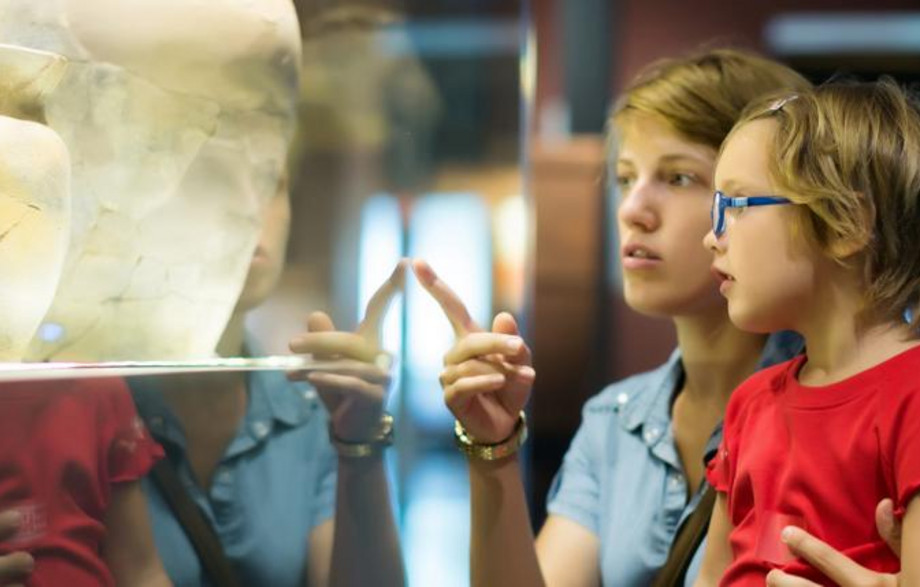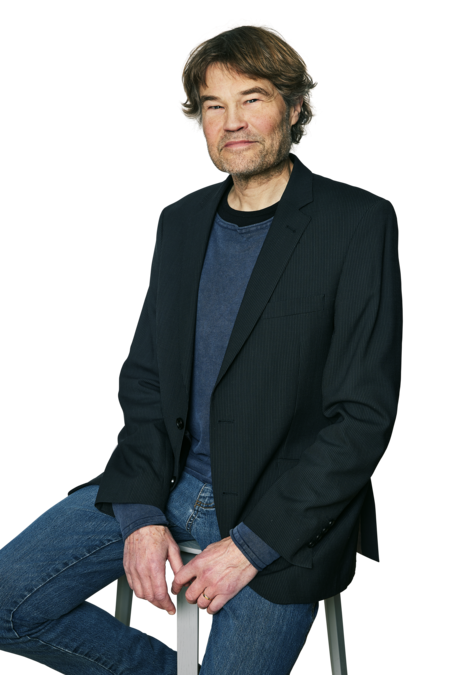Museum projects put models, environmental history and citizenship in the spotlight

05.07.2022 l More news
With grants from VELUX FONDEN totalling DKK 14m, three museum projects are set to strengthen research and rethink dissemination at Danish museums large and small.
The Museums Programme has been developed in collaboration with Danish museums. This is the eighth time that VELUX FONDEN allocates grants under the programme. Since 2015, more than DKK 129m has been awarded to a total of 28 projects throughout Denmark.
The foundation received a total of 17 expressions of interest from Danish museums and universities for the programme’s open call in 2021. Of these, six project proposals were invited to prepare a full application and were granted project maturation funds of up to DKK 100,000.
How do you negate the distinction between natural and cultural history and convey a town’s history based on the perspectives of its surrounding nature? How did Denmark deal with resocialisation and democratisation after WW2, and what are the lessons from that in the context of current issues of deradicalisation and citizenship? What significance does museums’ use of physical models of things have in creating and disseminating knowledge?
These are the overriding questions posed by the three projects which VELUX FONDEN is now awarding grants to under the foundation’s Museums Programme. The programme supports collaboration across museums and universities with the aim of realising original integrated research and outreach projects.
Enlightened, inclusive and sustainableThe three projects involve numerous museums in Jutland and Copenhagen and five universities.
“This year’s grants clearly show that museums large and small in cities and towns of varying size are capable of delivering high-level research and dissemination in collaboration with Danish universities. Museums play an important role in sharing new research and knowledge with people across the country and can generate engagement, experiences and conversations about our past, present and future. Focusing on a diverse range of themes, the three museum projects reflect VELUX FONDEN’s overall aim of strengthening the Danish democratic society on an enlightened, inclusive and sustainable basis,” says Henrik Tronier, head of programme for VELUX FONDEN’s humanities funding area.
The three projects will each receive a grant of DKK 4.7m.
Post-war lessonsCommon to the projects is the intersection of research and museum dissemination and a focus on inclusion.
At Sydvestjyske Museer in Esbjerg Municipality, the project ‘The outcasts, the unwanted and the admired. Resocialization, welfare, and democratization 1945-1950’ will take a closer look at post-war Denmark:
“War brings suffering and deprivation but can also be a catalyst for new societal ideals. We examine the flourishing political ideas of democracy and welfare in Denmark around 1945 by looking at, among other things, the treatment of resistance fighters after the war. For example, what was the thinking behind giving a trainee engineer who had been imprisoned by the Germans for sabotage money for tuition and clothing and what were the wider implications of that form of welfare? We are looking forward to investigating this,” says project manager Henrik Lundtofte, PhD, from Sydvestjyske Museer, who goes on to say that the project aims to bring to life a time in Denmark’s history when the big questions about the structure of society and social cohesion were up in the air and ideals were immediately put to the test.
At the Cultural History Museums in Holstebro, the project ‘Welcome to the multispecies museum’ on the occasion of the town’s 750th anniversary will convey Holstebro’s past and present in an exhibition about the local stories of animals, stream and ford.
At the National Museum of Denmark, the project ‘The Power of Modelling’ takes a more theoretical approach by exploring the power of physical models to transfer and disseminate knowledge and develop a new co-creative format for museum dissemination.
- Resocialization, welfare, and democratization 1945-1950
The partners areMuseum of Southwestern Jutland, Varde Museums, Viborg Museum, and Danish Centre for Welfare Studies, SDU. University of Aarhus/DPU, National Museum of Denmark, and Esbjerg Municipality’s school service, Myrthue, participates in parts
V. Archive manager Henrik Lundtofte, DKK 4.694.130
Did the approach towards ostracized collaborators, unwanted German refugees and admired resistance fighters strengthen the democracy and the welfare system? That is one of the main questions in this cross-institutional project about resocialization and democratization in Denmark after World War II.
The project examines how the authorities prepared 60.000 refugee children for a future in a democratic Germany, how imprisoned Danish SS-soldiers were de-nazified, and whether the many young resistance fighters were reintegrated into civilian society. Thus, this project provides empirical research and versatile communication about highly current issues connected to deradicalization and citizenship.
V. Research professor Morten Nielsen, DKK 4.699.998
The project is organized as an interdisciplinary collaboration between three museums (The National Museum of Denmark, Moesgaard Museum and The Steno Museum) and three research institutions (Aarhus University, Royal Danish Academy and IT University of Copenhagen).
Physical models are used to produce and mediate knowledge in an immediately accessible way at and outside museums. Despite widespread use of physical models, however, we know very little about what they actually do: How do physical models function and take on meaning? And to whom do they carry meaning?
The objective with ”The Power of Modelling” is to produce new knowledge about physical models and to use this knowledge to develop a new format for co-creative exhibition-making. Collection studies and new ethnographic and historical data about four forms of physical models – toys, ships, buildings and robots – serve as basis for developing the new exhibition format.
V. Museum director Ingeborg Svennevig, DKK 4.667.250
The project is a collaboration between The Cultural History Museums in Holstebro's archeologists, historians, anthropologists and researchers from the universities of Copenhagen and Aalborg.
What might we learn about our hometown’s cultural history if we focus our attention on the histories of the local river, the old ford and the city lives of animals in the past and the present?
With this project, The Cultural History Museums in Holstebrowill celebrate our home town’s 750th anniversary.
We will create a lively and thought provoking exhibition about past, present and future cohabitation and mutual relationships between humans, non-human animals and the river and ford in Holstebro.
The project aims to explore an idea, which we call the multispecies museum. It is a museum that considers human beings as well as animals, plants and other non-human life forms as cultural historical actors in its storytelling.
